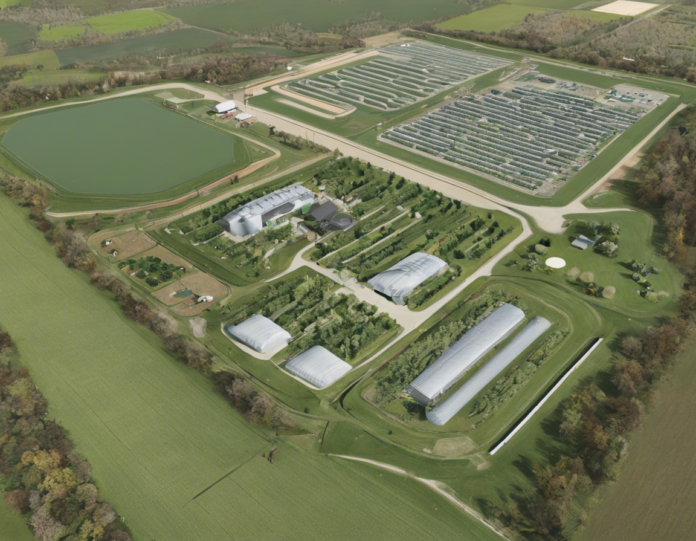In the realm of agriculture and food production, the importance of sustainability has increasingly become a predominant concern. As consumers become more conscious of their impact on the environment and their health, there is a growing demand for sustainably produced goods. Nova Farms, a leading player in the agricultural industry, has been at the forefront of incorporating sustainable practices into their operations. In this comprehensive guide, we will delve into the various sustainable initiatives undertaken by Nova Farms and how these practices contribute to environmental stewardship, social responsibility, and economic viability.
The Sustainable Philosophy of Nova Farms
At the core of Nova Farms’ ethos lies a commitment to sustainability. For Nova Farms, sustainability encompasses not just environmental considerations but also social and economic aspects. By adopting a triple bottom line approach, Nova Farms strives to create a sustainable business model that benefits the planet, people, and profits.
Sustainable Agriculture Practices
Nova Farms has implemented a range of sustainable agriculture practices to minimize environmental impact and promote ecosystem health. This includes:
-
Crop Rotation: Nova Farms practices crop rotation to prevent soil depletion and minimize the need for synthetic fertilizers.
-
Cover Cropping: By planting cover crops, Nova Farms protects the soil from erosion, improves soil fertility, and promotes biodiversity.
-
Integrated Pest Management (IPM): Nova Farms utilizes IPM strategies to control pests and diseases through natural means, reducing the reliance on harmful pesticides.
-
Water Conservation: Nova Farms has implemented drip irrigation systems and rainwater harvesting techniques to optimize water usage and mitigate water wastage.
Sustainable Energy Initiatives
In addition to sustainable agriculture practices, Nova Farms is also committed to sustainable energy solutions. This includes:
-
Solar Power: Nova Farms has invested in solar panels to harness renewable energy and reduce reliance on non-renewable resources.
-
Energy-Efficient Practices: Nova Farms has upgraded its equipment and machinery to ensure energy efficiency, thereby lowering carbon emissions.
Community Engagement and Social Responsibility
Nova Farms recognizes the importance of community engagement and social responsibility in fostering sustainable practices. Some of the initiatives undertaken by Nova Farms include:
-
Local Sourcing: Nova Farms sources inputs and supplies locally, supporting small businesses and reducing carbon footprint associated with transportation.
-
Employee Welfare: Nova Farms prioritizes the well-being of its employees by providing fair wages, healthcare benefits, and opportunities for skill development.
Sustainability Reporting and Transparency
As part of its commitment to sustainability, Nova Farms regularly publishes sustainability reports that detail its sustainable initiatives, goals, and performance metrics. By being transparent about its sustainability efforts, Nova Farms aims to be held accountable and drive continuous improvement.
Frequently Asked Questions (FAQs)
-
What does sustainability mean in the context of agriculture?
Sustainability in agriculture refers to practices that aim to meet the current needs of food production without compromising the ability of future generations to meet their own needs. -
How does sustainable agriculture benefit the environment?
Sustainable agriculture promotes soil health, biodiversity conservation, and water efficiency, thereby reducing environmental degradation and preserving natural resources. -
What are some examples of sustainable agriculture practices?
Examples of sustainable agriculture practices include crop rotation, cover cropping, integrated pest management, and water conservation techniques. -
Why is sustainability important in the food industry?
Sustainability in the food industry is crucial for ensuring long-term food security, reducing carbon footprint, and promoting ethical practices throughout the supply chain. -
How can consumers support sustainable agriculture?
Consumers can support sustainable agriculture by purchasing products from sustainable sources, reducing food waste, and advocating for sustainable practices in the food industry.
In conclusion, Nova Farms exemplifies how sustainable practices can be integrated into agriculture to benefit the environment, society, and economy. By embracing sustainability as a guiding principle, Nova Farms sets a positive example for the industry and demonstrates that sustainable practices are not just a choice but a necessity for the future of agriculture.





